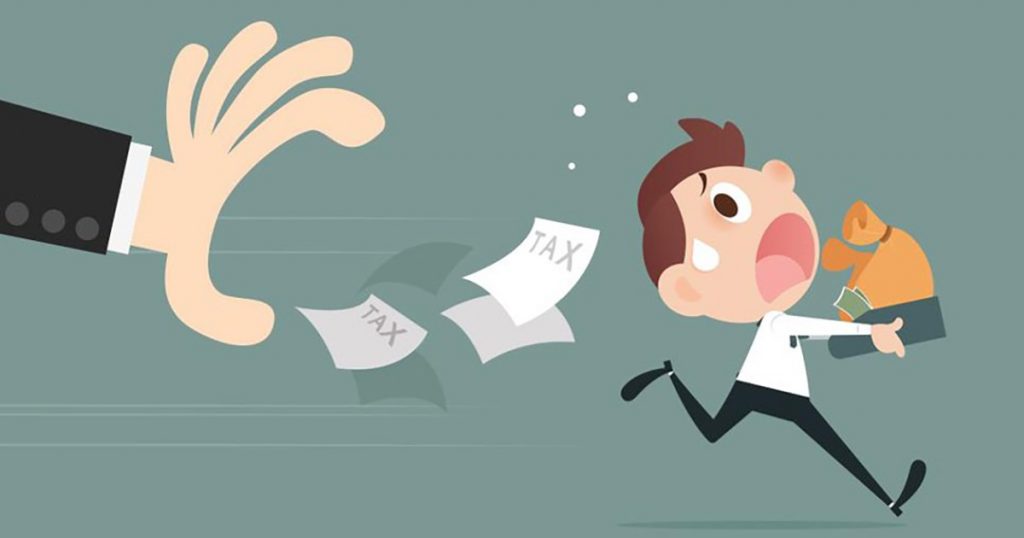
Government is pressing pedals to curb tax evasion by widening the taxpayer base and by augmenting the class of people for compulsory filing of ITR.
According to the official data, the total number of income tax returns (ITRs) filed in 2017-18 is 6.86 crore which registers an elevation of 23 per cent over the last year. This apparently shows the improvement in tax compliance in the last few years. But in the nation with a population of approx 130 crores, the Government further sees more scope of improvement and so it is eyeing on taking high-value transactions in consideration for ITR filing.
“People evading tax have to be dealt with differently. The 2 per cent TDS (in case of withdrawal of more than ₹1 crore cash from a bank account in a year) is actually for those who are getting away.
You must have seen in the budget that there are several measures such as those whose electricity bill is more than ₹1 lakh would need to file the return. We may notify some other class of people who would be required to file tax returns,” said Ajay Bhushan Pandey, Revenue Secretary.
Read Also: Logic Behind Linking of GST Number With Power Consumption
Under the proposed Union Budget for 2019-20, filing an ITR becomes mandatory for the individuals whose annual deposit in a current account is more than ₹1 crore, whose foreign travel expenses are more than ₹2 lakh or whose annual electricity bill expenses is more than ₹1 lakh. According to the experts, high hotel bills, hefty expenditures incurred on party or buying a car may also require people to file ITR.
“The government has already said that those doing high-value transactions would be covered. The next could be high hotel bills, clubs, expenditure on holding a party, purchase of cars and investment above a certain level,” said Riaz Thingna, Director, Grant Thornton.
“If someone is buying a car for ₹5 lakh, it is unlikely that his income would be less than ₹5 lakh. Today, people are buying ₹75 lakh car and still not paying taxes. So, I think there are enough opportunities to take up so many different areas.” He added.
The Modi government has been continuously working against the generation of black money and it has taken many measures to transform the Indian economy into the cashless economy. Among them, demonetisation was the major step to discard the loopholes of tax evasion and avoidance.
Now the next step adopted by the government is based on the principle of – “higher the earning higher the tax”.
Recommended: GST: Is it Really A Tool To Check Black Money or Not?
As a result, the surcharge of 15 per cent has been elevated to 25 per cent for the individuals with annual income between ₹2 to ₹5 crore. Similarly, for those with the annual earnings of ₹5 crore or more, the surcharge has been raised from 15 per cent to 37 per cent. In this way, the effective tax rate will lift up to 39 and 42.74 per cent for those in the ₹2-5 crore and ₹5 crore & above income slab, respectively.
Fed up to the back teeth, big industrialists discontents the decision to which the Revenue Secretary argued in a defending way by giving an example of many countries like the US, France and China where the higher tax rate is liable on high earnings and proving that India still taxes its super-rich class at lower rates.
“In India, before the (proposed) increase, for the highest tax bracket, the tax rate was 35.8 per cent. In Brazil, it is 27.5 per cent. In Canada, it is 33 per cent plus 21 per cent state taxes. It is more than 45 per cent in China, 66 per cent in France and 50 per cent in the US,” Pandey explained.
He also explained that economic decisions are taken on the basis of overall economic conditions and not on the basis of if someone would take advantage of the provisions in an illegal way, in response to the apprehension that the increment in customs duty on gold would consequence smuggling, while confirming that enforcement agencies would handle the problem of gold smuggling.
“We should not be using our forex for non-essential imports. So, the proposal goes along with this policy. The issues related to smuggling or anything will be dealt with by the enforcement agencies,” the revenue secretary said.









